The opening lines of Princess Cyd, a 2017 movie now available on VOD, are spoken over a black screen. A man has called 911 after finding the bodies of two of his neighbors, shot dead. He explains to the dispatcher that he and his wife heard gunshots and came over to check on them; two people were dead, and his wife was upstairs with a little girl, who slept through the whole thing.
It’s a pretty jarring way to set up a story, and suggests a darker movie than this one actually is. That pain and darkness float beneath the quiet, beautiful summer days in which it is set in the way that painful secrets and memories tend to do. But this isn’t a murder mystery or a thriller. Princess Cyd is foremost about two women, and how they connect across generational, spiritual, sexual, and personal differences to become family.
Cyd is the little girl from the phone call, now sixteen, living with her depressed single father in South Carolina. Miranda is her big-time author aunt, her mother’s sister, who lives in the huge and beautiful Chicago home she grew up in. When her brother calls after one of her readings and asks if it’s alright for Cyd to spend a few weeks of the summer vacation with her, Miranda reluctantly agrees.
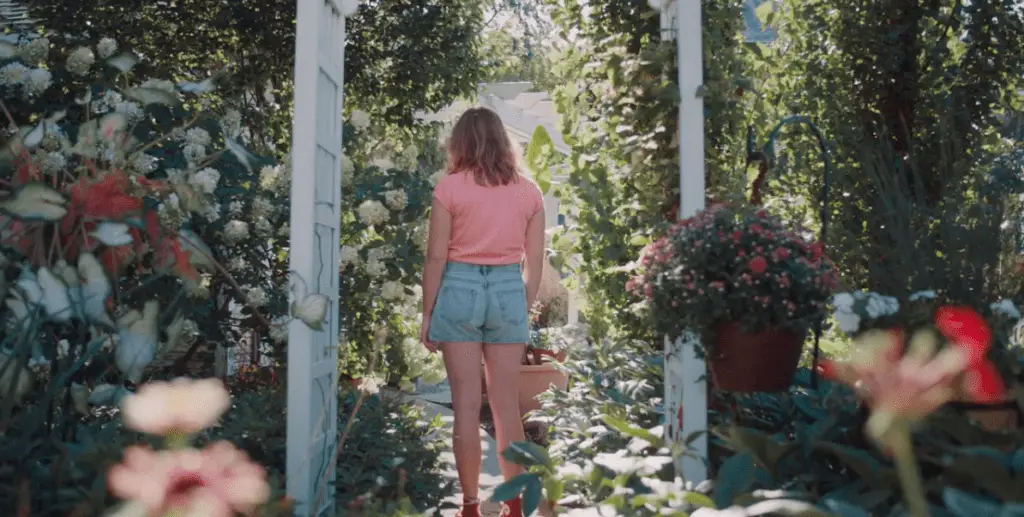
Miranda is intellectual, academic, creative, and spiritual. She is open-minded and worldly, yet she is also a little stuck in her ways. This is a trope of spinsters, but the film treats Miranda’s habits as simply things that tend to develop when one lives a somewhat solitary and very reflective life, like, for example, the life of a writer. Writers spend a lot of time going inward, but that’s not a bad thing. And Miranda is by no means a shut-in. She has a lot of friends, including a writer-friend named Anthony, whom she is helping with his first novel. The potential for romance between them is a thread that doesn’t get a definitive ending, but their friendship is deep and trusting. Miranda also throws monthly soirees for her friends, a group that is diverse in age, race, and gender.
Cyd is a soccer star at her high school, and she is very much sixteen. She is learning about herself and about what the world looks and feels like to her. She has a boyfriend who she describes as “fine,” and who acts very disinterested in reading or stories, much to Miranda’s chagrin. Cyd is a little self-absorbed and a little tactless and a little annoying, but she’s also observant and kind and confident and reflective in her own way. In other words, she’s a teenager, and she is so much like most teenagers I know. There are so many things she doesn’t realize, but that’s okay. She’s figuring it out. That’s what adolescence is.
Both women try to be friends and family, throughout the film. They make accommodations for each other’s differences but also push back sometimes. The relationship they build over the course of the summer feels incredibly realistic to the situation of family members who aren’t very close being suddenly thrown together in close proximity. Neither of them mind, per se, but also, at first, they would both maybe rather not.
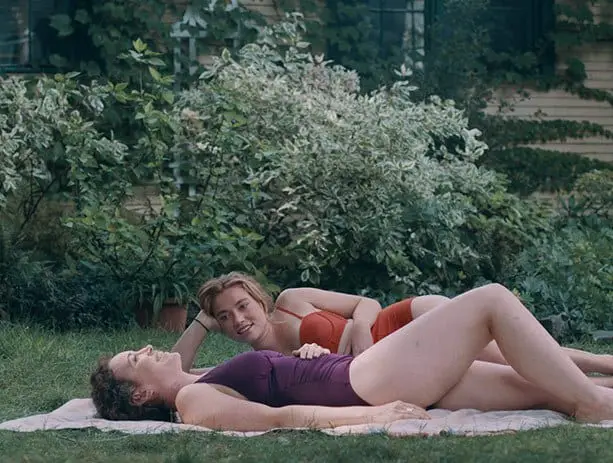
The other important relationship of the movie is the one that blooms between Cyd and Katie, a masculine-of-center woman, slightly older (somewhere around 18-19), who works at a local coffee shop. Katie sports a mohawk and an easy smile that captures Cyd’s attention immediately. One day, Cyd goes into the coffee shop just to look at her again, and Katie asks if she’d like to go for a walk.
Katie is such a beautiful character. She’s a little more mature than Cyd, but Cyd holds her own. One of the best lines is when Katie is in Cyd’s room, which is her mom’s old room, looking through the bookshelf and ticking off all of the ones she’s read. “You don’t really seem like a reader,” Cyd says. Katie responds, with a smile, “Fuck you, what does a reader even seem like?” This is just one of many lessons in Cyd’s education in her own biases and stereotypes.
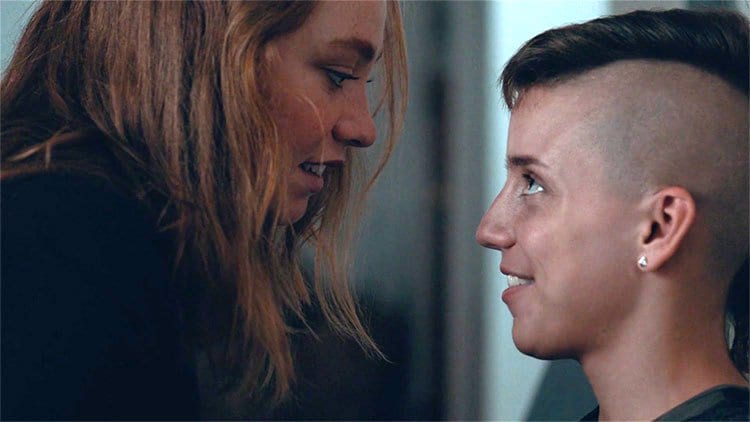
Cyd’s exploration of her sexuality shows a young person who is both open and self-assured as well as nervous and hesitant. This also feels very realistic. When Cyd confesses to Miranda that she wants to have sex with Katie, Miranda isn’t phased. She says Cyd’s mother had a thing with a girl once, and it was lovely. This is a small but important moment—it validates Cyd’s feelings while also making her feel a little closer to the mother who was taken from her so young, a desire that isn’t spoken but runs deep. Cyd asks Miranda, “How do you do it?” to which Miranda laughs and says, “You’ll have to ask google about that one.”
Eventually Katie and Cyd do have sex, and it’s a wonderful scene. So often, lesbian sex scenes are either geared toward the male gaze or involve the protagonists remaining fully clothed. This one conveys intimacy really well. And when Miranda, sitting at her writing desk, overhears them, she simply smiles in a way that suggests she’s happy that Cyd is happy.
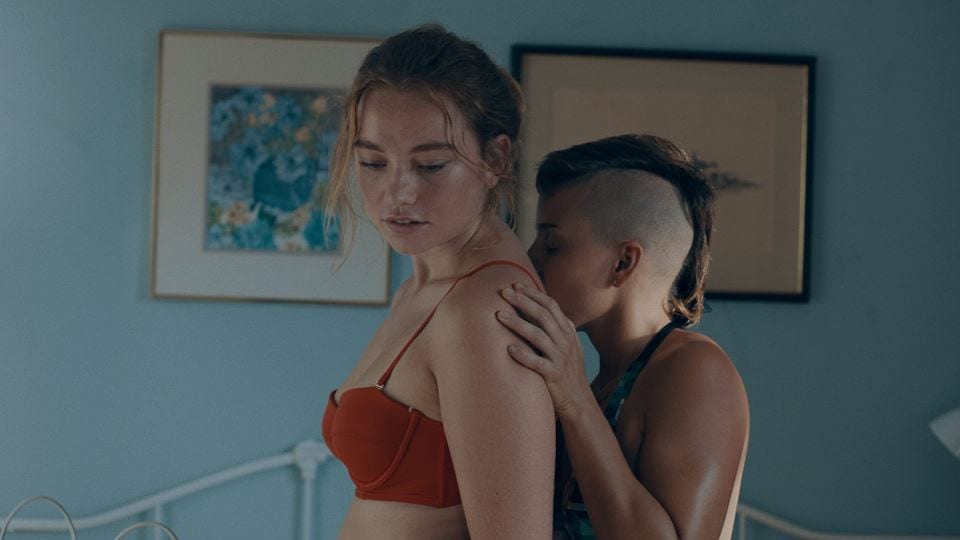
There is a subplot involving sexual assault. Katie lives with her brother, whose friend Tab moves in after losing his apartment. He gets drunk and threatens Katie, attempting to assault her, and texts Cyd for help; she and Miranda go to Katie’s apartment, where Tab passed out on the couch after she punched him. They bring Katie home with them after Cyd, crying, wraps her fingers around Tab’s throat. Miranda gently pulls her away. We later learn that it was Cyd’s teenage brother, who suffered from severe and untreated mental health issues, who shot their mother and himself. It seems safe to assume the moment between Cyd and Tab had roots in the resentment Cyd harbors for what her brother did.
In the end, Cyd returns home to South Carolina, the magical summer of learning, growing, and loving still a glow inside of her. When Miranda calls her from the beach to tell her she misses her and loves her, Cyd is quiet for a moment. It’s as if she could hear her mother saying that, followed by her internal embrace of her aunt, not as a surrogate for her mother but as a mother figure, as family. “I love you too,” she replies.
Overall, this movie is a lovely and gratifying story of women growing individually and together, and part of that is a really sweet queer lady romance. And while I’m always here for that, my favorite part of the movie is a scene between Cyd and Miranda that takes place as they’re cleaning up after the soiree. Miranda says she’s going to have one more piece of that delicious cake, and asks if Cyd wants to join her. Cyd says that if Miranda had sex more, maybe she wouldn’t want to eat all the time. She doesn’t mean this to be mean, but realizes after she’s said it that it is a mean thing to say. But Miranda has a perfect response, one that cemented how much more I relate to her character than Cyd’s:
“Let me just say something to you real quick. It’s okay, but I need you to listen to me, okay? Honey, I wish I could share with you the utter joy it brings me to spend three hours on a Saturday afternoon reading… or discussing T.S. Elliot or James Baldwin with a dear friend until dawn… but I can’t. Because I am me and you are you, I can’t relay to you the total fulfillment that I get from these things, it’s impossible. And I understand; you’re finding your own joy. You’re engaging your own stuff, and that’s how it should be, and it’s a beautiful thing. But hear me. It is not a handicap to have one thing, but not another. To be one way, and not another. We are different shapes and ways and happiness is unique. There are no rules of balance… so let’s just enjoy ourselves.”
I love that this addresses the fact that even things that are generally agreed upon in society to be universal desires, like sex, are actually individual preferences, and that happiness is unique to people. It comes from different sources for everyone. That doesn’t mean we can’t relate to each other and love each other, even if many of our sources of happiness are vastly different. It just means we need to respect each other.
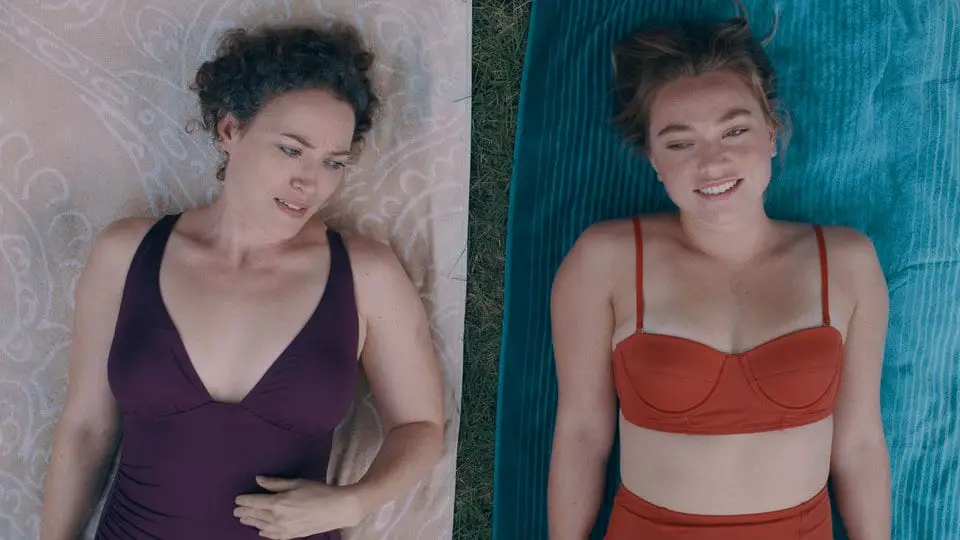
I rate this movie 9/10 lilac flowers. It’s lovely and heartwrenching, and includes a great queer relationship without any of the character drama being about coming out or coming to terms with queerness. Don’t get me wrong, those stories are also important and wonderful, but it’s refreshing to see queer characters just being themselves in the world without that sometimes. The themes of family, autonomy, and growth, coupled with some gorgeous cinematography, make this an excellent watch.

